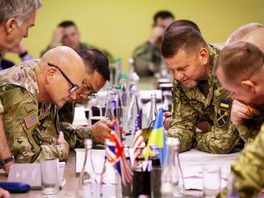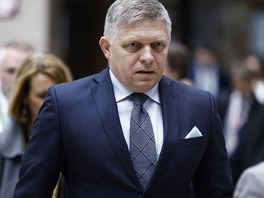The Council of the European Union has extended economic sanctions against Russia expiring on January 31 for six months due to the situation in Eastern Ukraine, as was reported by the press-service of the Council of the European Union.
"The Council today decided to prolong the restrictive measures currently targeting specific sectors of the Russian economy until 31 July 2021," the EU Council said in a statement.
The Council's decision follows the latest assessment of the state of implementation of the Minsk agreements.
“Given that the Minsk agreements are not fully implemented by Russia, EU leaders unanimously took the political decision to roll-over the economic sanctions against Russia," the Council stated.
The first package of sanctions was initially introduced in 2014. They are aimed at the financial, energy, and defense sectors of Russia.
“The sanctions limit access to EU primary and secondary capital markets for certain Russian banks and companies and prohibit forms of financial assistance and brokering towards Russian financial institutions. The measures also prohibit the direct or indirect import, export or transfer of all defense-related material and establish a ban for dual-use goods for military use or military end users in Russia. The sanctions further curtail Russian access to certain sensitive technologies that can be used in the Russian energy sector, for instance in oil production and exploration,” as was stated in the Council of the EU press release.
In response to the deliberate destabilization of Ukraine and the illegal annexation of Crimea by Russia, the European Union has also implemented diplomatic and individual restrictive measures (asset freezes and travel restrictions), as well as specific restrictions on economic relations with Crimea and Sevastopol.
As was reported by “Apostrophe” earlier, the European Union imposed individual personal sanctions against Alexander Lukashenko.





